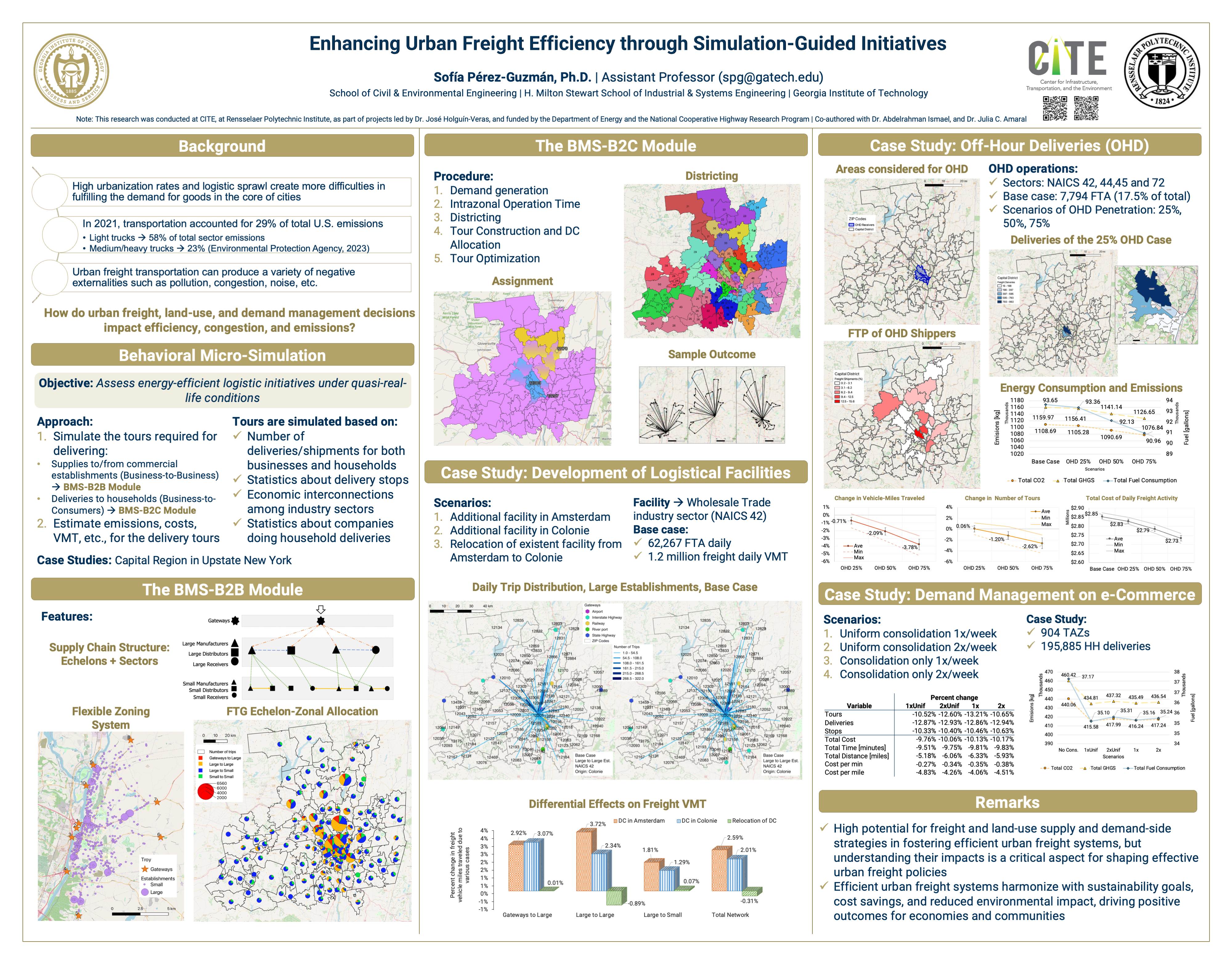ENHANCING URBAN FREIGHT EFFICIENCY THROUGH SIMULATION-GUIDED INITIATIVES
PI: Sofia Perez-Guzman
Co-PI(s): OT-05
Institution(s): Georgia Institute of Technology
Abstract
Current freight demand patterns pose challenges to energy efficiency and counteract supply-side progress. Urbanization and logistic sprawl exacerbate the complexities of supplying urban cores, giving rise to issues like pollution, congestion, and noise. Understanding the impact of urban freight and land-use decisions on energy efficiency, congestion, and emissions is paramount. A Behavioral Microsimulation Software (BMS) was devised to investigate this. The BMS simulates freight vehicle tours in a study area, offering insights into freight activity and policy impacts. At the general level, the BMS provides aggregate metrics; at the detailed level, it outputs tour details. It leverages freight trip generation estimates, and the US Bureau of Economic Analysis Input-Output Accounts for trade analysis. This versatile BMS evaluates a spectrum of supply chain activities?transportation supply to land use interventions. The study scrutinized three policies: (1) logistical development, (2) off-hour deliveries (OHD), and (3) demand management on e-commerce, all applied to a metropolitan and a specific region in New York State. The logistical development analysis showed that new facility development leads to smaller increases in freight (business-to-business) Vehicles-Miles Traveled (VMT) when located closer to the city?s center than toward the area’s outskirts. Moving closer to the city?s center reduces VMT when relocating an existing facility. These results underscore supply-side initiatives’ role in efficiency. The OHD investigation highlighted how higher penetration of OHD leads to lower freight (business-to-business) VMT, emissions, and fuel consumption, enhancing efficiency and reducing costs due to more compact and efficient tours. These findings emphasize the potency of demand-side strategies in fostering efficient urban freight systems. The demand management on e-commerce case showed that various forms of consumer adoption of household delivery consolidation could lead to notable reductions in the total number of deliveries, tours, and stops, resulting in cost savings, reduced fuel consumption, and decreased environmental emissions from business-to-customers freight activity. The findings serve as a practical illustration of the potential benefits that demand management strategies can bring to e-commerce deliveries. Reduced VMT yields cost savings, lower energy consumption, and decreased emissions, yielding substantial societal benefits. For policymakers and practitioners, these insights are invaluable for shaping effective urban freight policies. Efficient urban freight systems harmonize with sustainability goals, cost savings, and reduced environmental impact, driving positive outcomes for communities and economies.

Please comment below with any statements or questions you may have. Also let GTI if you would be interested webinars or presentations on similar topics.

